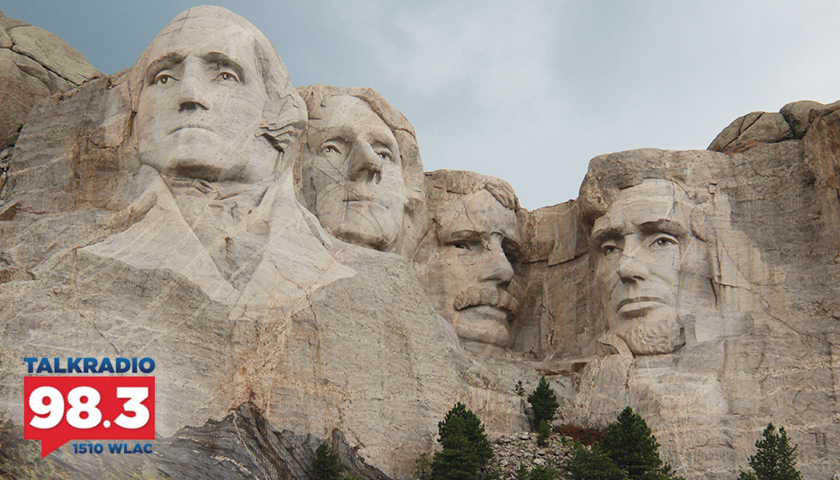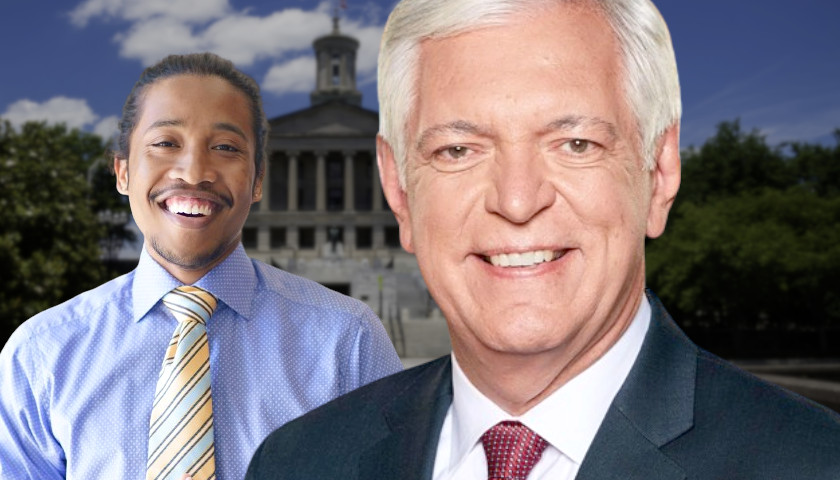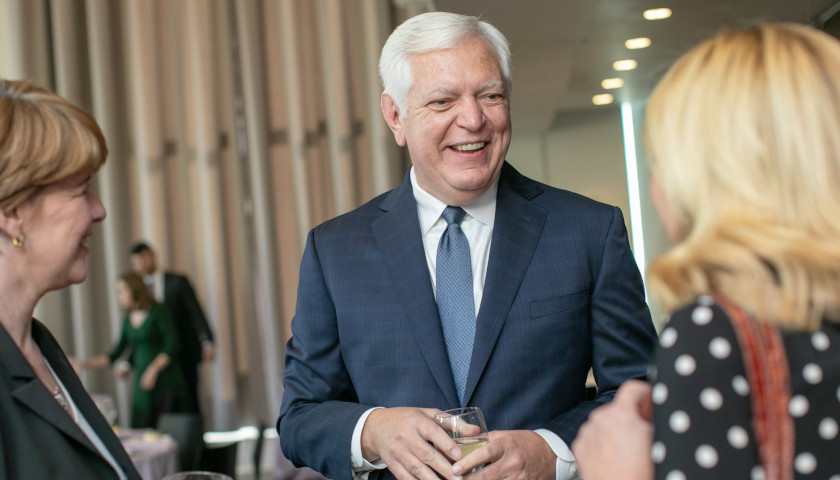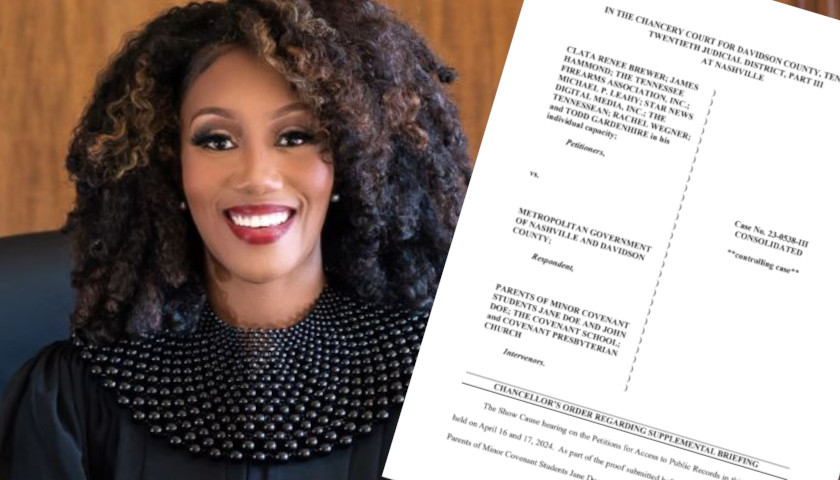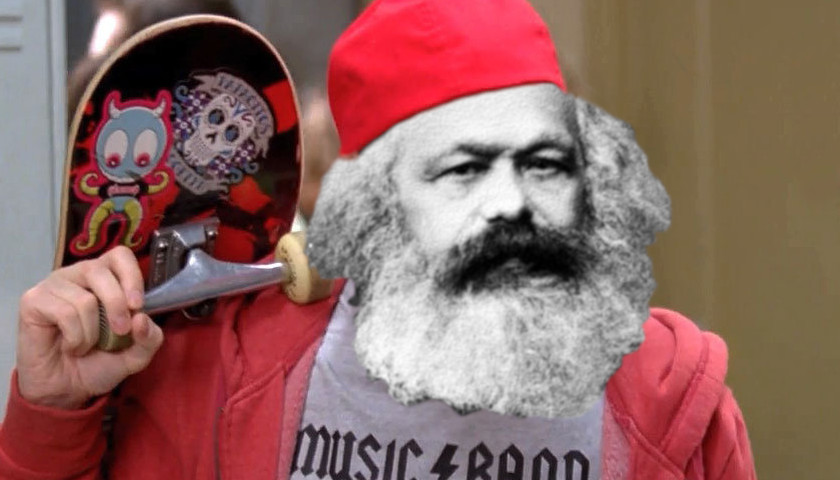Live from Music Row Monday morning on The Tennessee Star Report with Michael Patrick Leahy – broadcast on Nashville’s Talk Radio 98.3 and 1510 WLAC weekdays from 5:00 a.m. to 8:00 a.m. – host Leahy welcomed Senior Fellow at Competitive Enterprise Institute, John Berlau to the newsmakers line to discuss entrepreneurism, capitalism, innovation, and our America’s Founding Fathers.
Leahy: In studio with us, the original all-star panelist, Crom Carmichael, and my good friend, Senior Fellow at Competitive Enterprise Institute, John Berlau. John, before we get to your book and what George Washington might say about America in 2021, tell us, why you are in Nashville?
What prompted you? Because you’re based in Washington, D.C. You’ve been with the Competitive Enterprise Institute, a fine conservative organization for about 14 years. What brought you to Nashville today and this week?
Berlau: Well, pure pleasure, including this show. It’s a pleasure. But my mom and sister and brother-in-law, the brood, and I grew up in Kansas City, and we all decided to sort of after being cooped up by COVID and the mandates that we were going to have a destination Thanksgiving.
They drove up from Kansas City here, and I flew down from D.C. And so we’re going to just do the fun touristy stuff here and see things like the Country Music Hall of Fame and just have a great time.
Leahy: A wise man.
Carmichael: Be sure to go to the Johnny Cash Museum.
Berlau: Definitely.
Carmichael: I will promise you that it will exceed any expectations no matter how high you have them. Johnny Cash was a very complicated guy. And I will tell you that you’ll spend three hours in there and somebody will have to pull you out. And then I think the Patsy Cline Museum, which I have not seen is on the second floor.
Leahy: Well, there you go.
Berlau: I’ve actually been to Patsy Klein’s grave in the festivities in Winchester, Virginia, her hometown which is near D.C.
Leahy: We’re delighted you’re here, by the way, and that you chose Nashville. Why wouldn’t you choose Nashville as a holiday destination? More and more people are doing that.
Carmichael: They’ll have a great weekend.
Leahy: And we’re delighted to welcome you to the wonderful state of Tennessee. I don’t know if I’ve mentioned this ever before, but we have no state income tax here, John. None. Zero zip. Nada. How about that?
Berlau: Well, that is great. And you’re seeing with all of the businesses incorporating here in Tennessee, particularly most media businesses, that even they are affected by taxes.
Leahy: And our good friends at the Daily Wire are headquartered here now. And in addition to The Federalist is here. Lots of people Parler’s headquarters are here now in Nashville, right.
Berlau: I was going to mention your competitors, whatever you want.
Leahy: They are friends. We believe in a conservative ecosystem. And of course, it all started John, you were here when it all started because you were here almost five years ago, gave a speech. I was there. I was trying to recruit reporters for the Tennessee Star.
Of course, it was The Tennessee Star that started on the Web at Tennesseestar.com that started Nashville becoming the center of conservative media here. Others have followed us, but we led the way here.
Berlau: You really did.
Leahy: Now let’s talk a little bit about your great book. In addition to working at the Competitive Enterprise Institute in Washington, D.C., you wrote a book last year. It’s very good. George Washington Entrepreneur: How Our Founding Father’s Private Business Pursuits Changed America and the World.
Crom is a veteran entrepreneur and he understands business. I think if more people understood business and were involved in our government, our country would be better off. I think that’s one of the points that you make in your book.
Berlau: I do. And it’s very much a part of my mission at the Competitive Enterprise Institute. We talk about how, in addition to the current public policy battles, we remind Americans how this country was rooted in free enterprise.
Washington was a serial entrepreneur starting businesses from the whiskey distillery, which they’ve rebuilt at Mount Vernon to exporting flour with his own George Washington brand to mule breeding, which was the genetic engineering of his day.
In addition, we now know Washington, even though he lacked formal education, he couldn’t afford it like some of the other founding fathers to go to college did read many things, including books on agriculture and Adam Smith’s The Wealth of Nations, which made the case for capitalism against mercantilism.
Leahy: So for a period of time there was a G. Washington brand of flour. Is that right?
Berlau: Yes.
Carmichael: That’s interesting. So that’s gone away. But you’re saying the whiskey brand is being revived?
Berlau: Mount Vernon has its own, which I’ve spoken at a couple of times. Has its own ABC store. They’ve rebuilt the whiskey distillery and the flour mill. I think they do use some of the flour for some things. But they sell the whiskey-based on Washington’s old recipe now.
Leahy: Here in Tennessee of course, we have to say we’ve got great Jack Daniels whiskey in Lynchburg. And at some point. John, perhaps you should have a taste test to compare George Washington whiskey with Jack Daniels.
Berlau: I have to do that. I’ve only had Washington whiskey once, but yeah, I think Washington whiskey is straight rye. But he was again an innovator there. And Jack Daniels came a couple of decades after him. So he was an innovator in a lot of things.
Leahy: What would George Washington say if he came back today and he looked at the current state of our constitutional Republic with the grifter in chief, Joe Biden, the current occupant of 1600 Pennsylvania Avenue. What would he say about the country?
Berlau: I quote George Washington in George Washington: Entrepreneur actually, from his farewell address, where he was almost predicting the administrative state, where agencies like in this case, OSHA would just act without authorization of the law.
And he stressed in his farewell address that caution in the entrusted with the administration to confine themselves within their respective constitutional spheres, avoiding the exercise of powers of one department to encroach upon another. And he says if they do encroach if say, the executive would take on the legislature’s powers, it would result in ‘a real despotism.’
So I think he’d be very disappointed. He would like some of the things like our technology he actually predicted, like when he read about and saw hot air balloons that one day where they may fly over through the air from Paris, so I think he would be impressed with some of the technological achievements, but he really would have a problem with our administration of government in the administrative stage.
Leahy: You look at that generation of the Founding Fathers. They were all, in some regards, independent business people. Washington was sort of a leader in that. But they had plantations to run and other things. John Adams himself was more in the church.
Carmichael: Jefferson was a huge inventor.
Leahy: He’s a great inventor. Compare the caliber of individual in the Founding Father’s generation with whatever these creatures are in Washington today.
Berlau: Well, yes. They certainly ran businesses. And that’s entrepreneurship. Although Washington may have been the prime example, Ben Franklin had a publishing house, and he was starting to invest in things like and things like paper mills.
In fact, that was one of the hidden tensions of the Stamp Act, that you had to use British stamped paper when Americans were starting paper mills. Patrick Henry was a farmer, but also was sort of like the Alan Dershowitz of his day.
America’s first super lawyer where he would do everything from tax cases to murder trials. So there were a lot of fascinating ventures. And I may just do a follow up book about some of the other entrepreneurial ventures of the Founding Fathers.
Leahy: Would you pick one, or would you pick multiple founding fathers?
Berlau: I would pick multiple in this book.
Leahy: I think that makes an awful lot of sense. Crom which Founding Father would you recommend he also take a look at in addition to Patrick Henry and Thomas Jefferson?
Carmichael: I don’t know nearly as much as John does about the entrepreneurialism of the Founding Fathers. And I know that the definition of the Founding Fathers is much wider than just people who held political office. For example, Ben Franklin was considered a Founding Father yes?
Berlau: Yes.
Carmichael: Okay. And he wasn’t a politician. So I’d be interested to know what some of the other Founding Fathers who were not well known as politicians are and their contribution to the way we think in our constitutional Republic.
And most importantly, on what they think about the importance of having institutional constraints against the natural growth of the checks and balances.
Leahy: We’ve talked about that many times. One question for you, John, before the break here. You’ve got a full time gig. How do you have enough time to write a book?
Berlau: CEI has been very helpful with me as far as balancing the public policy work I did, which is so important with the historical work on America’s founding. We talk about Adam Smith and the people who laid the foundations of capitalism and how that is part of the American story. So I think it’s all part of CEI’s mission. If people want more information, they can look at Cei.org.
Leahy: And the book, George Washington Entrepreneur How Our Founding Father’s Private Business Pursuits Changed America and the World.
– – –
Tune in weekdays from 5:00 – 8:00 a.m. to the Tennessee Star Report with Michael Patrick Leahy on Talk Radio 98.3 FM WLAC 1510. Listen online at iHeart Radio.

